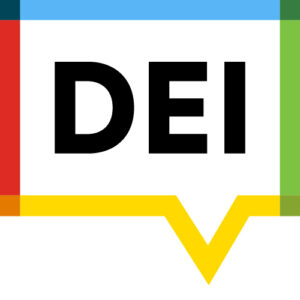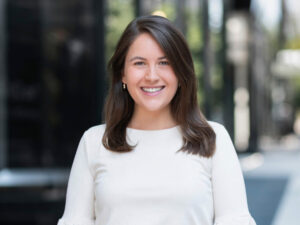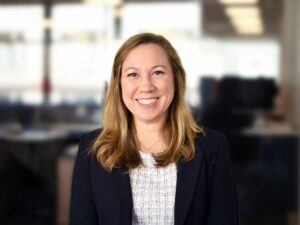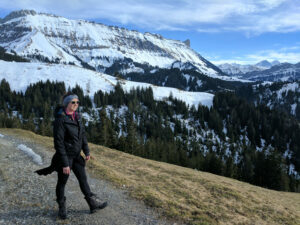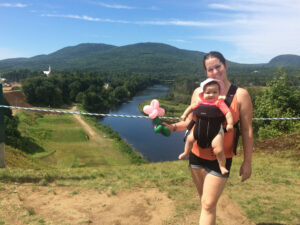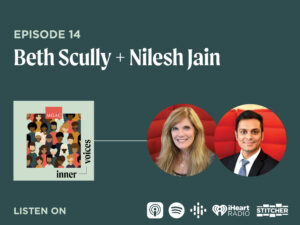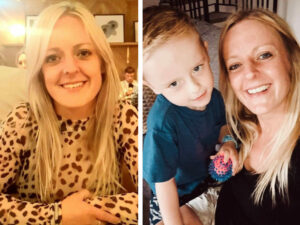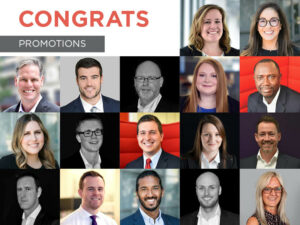MGAC Inner Voices: Episode 15

MGAC Inner Voices is an interview format podcast where a diverse mix of employees are interviewed to share their perspective on challenges they have faced in the A/E/C industry as a result of their identity—including race, ethnicity, religion, age, gender, sexuality, ability, etc. By discussing the experiences of our staff, our hope is that their stories will have newfound and powerful resonance with the audience—both to comfort others in similar situations and to encourage those in positions of power to bring about positive, actionable changes to workplace environments for all A/E/C professionals, regardless of their identity.
Beth Scully (MGAC Senior Project Manager, Seattle) talks with Stanislava Dobreva (MGAC Project Engineer, Los Angeles) about the importance of names and discrimination in the states compared to abroad.
View Transcript
Transcript
Beth: Hi, and welcome to MGAC's "Inner Voices," a podcast digging into issues of diversity, equity, and inclusion in the architecture, engineering, construction industry. Brought to you by MGAC. I'm Beth Scully, residing in Seattle, Washington. I'm a senior project manager. And a disclaimer, we wanna preface this podcast by saying that we are not experts in all things diversity, equity, and inclusion. As a person who identifies as a cisgender, I can speak to my lived experience and do my best to help our guests share their experiences as well.
Our goal is not to be the end-all experts on diversity, rather, we wanna share our stories and figure out how together, we can create better outcomes for all of us in the AEC industry, and beyond. Today, we have the pleasure of speaking with... And I'm gonna say this, I want you to introduce yourself because it's a topic that we're really addressing today. And I think it will be really important for you to say your name loud and clear and all of us to hear it.
Stanislava: Well, first of all, thank you for having me. My name is Stanislava Dobreva. I'm based in Los Angeles. And I'm currently working as a project engineer at MGAC.
Beth: I appreciate hearing your name right out loud, Stanislava. And one of the interesting little details we found out, I don't wanna steal your thunder, was that you are Bulgarian born. And I was able to share with you that my sister-in-law was also from Bulgaria, so we had fun talking about that. But let's dig right in. And how about you tell us your story, and a little bit about the importance of your name, and even your journey with your name.
Stanislava: I'm Bulgarian. So, I have a pretty traditional Bulgarian name. I was 8 years old when I moved to the UK with my family. And that was, actually, when I started primary school, and I was asked to change my name because of how traditional and difficult to pronounce it was to children at the time. So, that was when I had to pick an alternative name, which at the time I had chosen Delphine.
And from then onwards, from the age of 8 until probably the age of...when I graduated secondary school, so about 18, I carried this different persona. At the beginning, because I was so young, I didn't really realize or care so much about it until when I got older. I thought about it a little bit more, and I was just like, "Well, there's no really need to do that. People should be able to pronounce a pretty simple name." And, you know, looking back in hindsight, thinking about a primary school asking a student to change their name is just shocking to me at this point.
Beth: Yeah. And so, it wasn't until you actually got to university that you took on your name, your given name, right?
Stanislava: Yeah. So, when I finally registered for university, I used my given name. And then from then on introduced myself as Stanislava, although there were still people at university and since then, who asked me how to pronounce it, and whether I do have a nickname. But I'd say that more of the time now, I pronounce it slower for them and tell them that it's, "Stanislava."
Beth: Now, we can sit, and you can say, it really is kind of ridiculous that they asked you to change your name because it's not that difficult, really. And as far as diversity, and inclusion, and equity, as you think about that experience today, do you feel like having to go by a pseudo name rather than your given name, that...I don't wanna put words in your mouth, but did it alter you, or your path, or did it cause a life in your home versus a life at school?
Stanislava: Yeah. Definitely, there was a difference in how my family and close friends would address me because honestly speaking, I have a different nickname in Bulgarian, which because of the way endings change in the names, it's difficult to explain it to a foreign person and expect them to understand it and to use the appropriate ending for that nickname based on their conversation. So, I think that had an impact on the nickname that I chose.
I don't know if it would've changed my path, but it's confusing for a child or a person. It's just like, "Would you introduce yourself for someone else's convenience, or do you just continue using your given name?" But, you know, at the time, it wasn't something I paid attention to. It's only now, in hindsight, that I look back, and I'm just like, "Wow. Well, there was no need to do that." I don't know how much of a bit of an impact it would've had on my actual life. It's just confusing. I think that's just the most simple way to put it.
Beth: So, a tender question for you. Would you now as an adult, and obviously, you know, you are a project engineer, you are a person in your own right, with a really great education, can we name it for what it was, discrimination?
Stanislava: I would say there is a sense of exclusion with it, of course, because your actual self is not being accepted in its pure form. You have to change it to suit other people. So, when you look at it that way, I would say it's a level of discrimination.
Beth: Having spoken with you prior, I know that your mom is also a very accomplished woman. She's a doctor. I wonder if we might delve into that a little bit because it's also part of the story here.
Stanislava: She is a very hard-working woman. She had some difficulties initially when we moved to the UK, which, again, you could call discrimination. She wasn't initially accepted as a doctor. Her degree wasn't accepted straight away. It was only when Bulgaria joined the European Union, that her degree was accepted, and she was able to go ahead and work as a doctor. But in the process, because I think it was about five years from us when we moved there to when Bulgaria entered the EU, she was working towards getting her degree acknowledged and accredited. So, she was doing all the placements, and the exams, and all of that. But it definitely would've saved her a lot of time and effort if it was just purely accepted like it was five years later down the line.
Beth: Yeah. Yeah.
Stanislava: Very frustrating.
Beth: It's very frustrating. And I know that since you've come to the States when you and I spoke, you felt like discrimination in the UK was more present than here in the U.S. Am I recalling that correctly?
Stanislava: I can only speak for California. I haven't really had the opportunity to visit many other places, but everyone here has been pretty accepting. And, you know, several times when people have asked me for my name, if I see that they're struggling, I would even say, "You know, you can call me something else if it's easier." They would say, "No, no, it's fine. I can pronounce it. Just repeat it slower." So, they do make the effort, and I feel like, it's more accepted here.
Beth: It's a little bit different having lived in LA. Also, it is a very open community and also very diverse as well.
Stanislava: Yeah.
Stanislava: If your very early years are having to adapt to something else, do you feel, as a woman, in this industry, that you've had to adapt?
Stanislava: Well, that's a great perspective, actually. I didn't think of it that way, but I consider myself to be pretty adaptable and resilient. So, maybe that did have an impact. I've never really thought about it, but it makes sense.
Beth: It's interesting, isn't it, right?
Stanislava: Yeah.
Beth: We have sort of these experiences and, perhaps, we look back, and go, "Huh." You know, I've always thought of it as just my ability to do this, but I feel like, as a woman in the industry, sometimes that there are adaptations I've made. And I wonder how you are able to now use your unique identity as your strongest asset.
Stanislava: Well, you know, I actually think, in this industry, you have to have a level of emotional intelligence and be able to read people. And I think that's one thing that I really rely on. I feel like, I'm pretty good at reading the room. And I'm a relationship-space person, so that really helps me problem-solve and deal with certain situations because I'll address it in a certain way using my relationships, and always kind of try to put myself in their shoes, or how they would feel. And then that helps me get to the bottom of an issue, or think of a way to approach something to resolve an issue.
Beth: Yeah. I think that's a really profound skill to have, especially when people are coming to the table perhaps with a poker face, your ability to read a little bit deeper and put a different spin on things, maybe turns the tables a little bit, and really helps you when you're client-facing, or working with people in the industry.
Stanislava: You've really got me thinking now about how that simple...well, not simple, I shouldn't say that, but that experience may have really shaped my path, like you said. So, this has been insightful for me. Some people judge people by their name. With recruitment, for example, there's been times where I'll apply in the construction industry in the UK for a position. There's no reason why I shouldn't go for an interview, or get to the next stage because, on paper, I'm ticking the boxes, you know? It just makes me wonder, is it because of my name? Is it because I'm a female?
I feel like, the U.S. is a lot more accepting of women in the construction industry than the UK. And I feel like, there's more potential for growth here in terms of leadership and getting to a higher position in the construction industry, as a woman, than there is in the UK. That's also a big thing for me. When I did my dissertation in my bachelor degree, and in my master's degree, they were different topics, but they were both based around women. One of them was, "Women in the Construction Industry." The other one was, "How Women Use Value Networks to Gain Credibility." So, you know, I'm very interested in how your name, or how your identity plays a role.
Beth: Yeah. I think, especially in our industry as women, we face it a lot. I'm interested to kind of delve in with you a little deeper that you feel more acceptance, as a woman, here in the U.S. And yeah, I think of all the women that have gone before us to pave the way, right? And I had the privilege of interviewing Jacqualynn Karsten. And I don't know if you heard that interview or not, but she was definitely out there paving the way. As you think about these things, what does a more diverse AEC industry look like to you?
Stanislava: Well, of course, I'd say even more women in leadership. I have had lucky experiences where I haven't really been discriminated, in that sense, apart from, as I said, in interviews or not getting into a certain position, maybe because I am female. But I don't think, specifically, LA is lacking much. I don't wanna talk on everyone's behalf, but I would just say not to judge women on their gender and their ability to manage a project, quite simply, because I don't think that's anything to do with it. So, it's a male-dominated industry. Women have a different perspective as well on how they problem-solve and how they see certain situations.
Beth: Yeah. I always like to ask our guests on the podcast, for you, how can your coworkers who may not have a personal experience of having someone literally try and alter their identity by, "Hey, change your name. It's hard for me to say it." Or as a woman facing discrimination, how would you advise your colleagues, your coworkers to be an ally?
Stanislava: Just don't judge anyone on a name or a gender. I would just say, just try to be accepting, and just put yourself in someone else's shoe before you make a judgment. Because I feel like everyone has a story, which at work, you would never really find out about, or, like, has been through a journey, which you wouldn't necessarily hear about. So, it just helps to be accepting of everything and everyone.
Beth: Well, I know when you and I spoke, we both referenced the TED Talk that we had heard at the lunch and learned about how people have had their names altered. It's always been our hope as we share these podcasts that suddenly, people who know you, Stanislava, and know that now, you faced this same kind of discrimination as a child and you were asked to alter who you were, that the story becomes very personal. And the impact of that is like, "Oh. It's not it doesn't happen to somebody I don't know, but it's my friend, my colleague, Stanislava, whose name got altered." And so, I just wanna thank you for sharing that very personal story and for being willing to open up, and tell people, "Yeah. Hey, it impacted me. It changed me." And maybe you're even on a journey to think about how it changed you more than, perhaps, you had thought about, right?
Stanislava: Definitely. You've opened my eyes even more now. And I'll be...I mean, in Los Angeles fashion, self-evaluating.
Beth: Awesome
Stanislava: And that could have impacted me.
Beth: Awesome. Well, I wanna thank you for being part of our podcast. It's really been a privilege to chat with you. I hope I get to see you soon, in person. And just thank you so much for sharing your story with us today.
Stanislava: Thank you for the platform.
Beth: That concludes this podcast of "MGAC Inner Voices." Thank you so much for joining us. And please, check out next month for another episode of "Inner Voices." Until then, take care.
